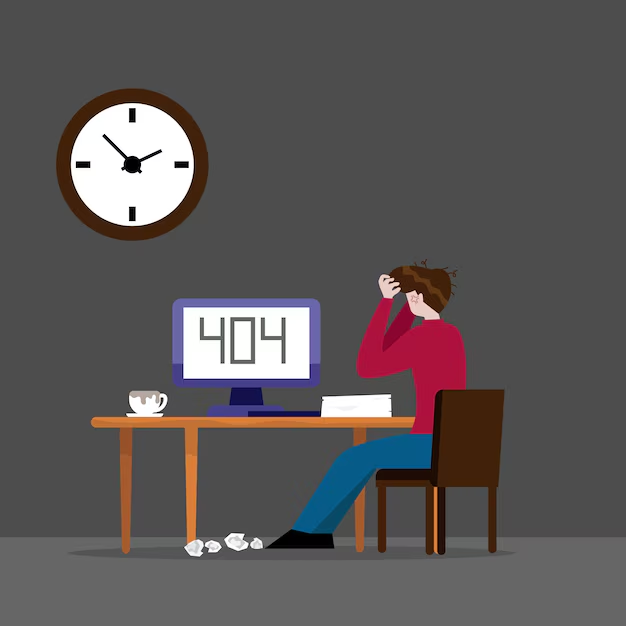Imagine this scenario:
Samantha, a 36-year-old ICU nurse, works rotating night shifts. After her overnight duties, she tosses and turns during the day, unable to sleep more than four hours. She often feels like a ghost in her own life, missing family events, dozing off at traffic lights, and experiencing brain fog at work. Samantha’s story is not rare; it is the story of millions globally struggling with shift work disorders.
In today’s 24/7 economy, jobs that operate outside the traditional 9–5 hours are increasingly common. Healthcare workers, emergency responders, factory employees, and customer support representatives often work irregular shifts. While this flexibility is crucial for the economy, it comes at a hidden cost: disrupted sleep and long-term health problems.
One of the most underdiagnosed and poorly understood conditions linked to night and rotating shifts is shift work disorder (SWD).
This condition not only impacts sleep but also mental well-being, work performance, and overall quality of life.
This article explores the causes, symptoms, treatment options, management strategies, and promising clinical trials offering hope to those living with shift work disorder.
Prevalence of Shift Work Disorder
Shift work disorder affects 10–38% of individuals working night, early morning, or rotating shifts, according to studies published in Sleep Health Journal. A study from the National Sleep Foundation revealed that about 20% of the workforce in industrialized nations work non-traditional hours. Of these, over 30% report persistent symptoms consistent with shift work disorder.
It is more common in occupations requiring high alertness, like healthcare, aviation, and manufacturing, where fatigue can lead to critical errors. The disorder is also seen more frequently among those with inconsistent shift patterns, poor sleep hygiene, and limited daylight exposure.
While most people occasionally struggle to adjust to shifts, those with shift work disorder experience chronic insomnia and excessive sleepiness that disrupt their daily functioning.
Read More: https://regic.net/what-causes-heart-hypokinesis-symptoms-risk-factors/
Causes of Shift Work Disorder
| Causes | Explanation |
| Circadian Rhythm Disruption | Night or rotating shifts interfere with the body’s natural sleep-wake cycle. |
| Sleep Deprivation | Reduced or fragmented sleep due to noisy environments or daylight. |
| Inconsistent Schedules | Irregular shift patterns prevent the body from adapting. |
| Lack of Light Exposure | Working nights limits sunlight exposure, which regulates melatonin production. |
| Occupational Stress | High-pressure roles, especially in healthcare and law enforcement, elevate stress levels and disrupt sleep. |
Shift work disorder is not just about poor sleep; it reflects a physiological conflict between our job demands and our biological clock.
Symptoms of Shift Work Disorder
| Symptoms | Description |
| Chronic Insomnia | Difficulty initiating or maintaining sleep during the day. |
| Excessive Sleepiness | Feeling drowsy or falling asleep during work or driving. |
| Irritability & Mood Swings | Lack of restorative sleep impacts emotional regulation. |
| Reduced Cognitive Function | Trouble with memory, concentration, and decision-making. |
| Gastrointestinal Issues | Disrupted eating schedules can lead to indigestion and appetite loss. |
| Low Work Performance | Fatigue impairs productivity and increases workplace errors. |
If left unmanaged, shift work disorder can also raise the risk for chronic conditions like obesity, cardiovascular disease, and depression.
Management Strategies for Shift Work Disorder
Managing shift work disorder requires a combination of lifestyle modifications, workplace adjustments, and sometimes medical interventions. Below are evidence-based strategies:
-
Establish a Consistent Sleep Routine
Even on days off, try to maintain the same sleep and wake times. Use blackout curtains and white noise machines to optimize your sleep environment.
-
Limit Caffeine & Stimulants
Avoid caffeine 4–6 hours before sleep. While it helps boost alertness during a shift, it may hinder falling asleep afterward.
-
Use Light Therapy
Exposure to bright light during your night shift and blocking light exposure in the morning using sunglasses can help reset your circadian rhythm.
-
Take Strategic Naps
Short naps (20–30 minutes) before or during your shift can significantly improve alertness and performance.
-
Sleep Aids & Supplements
Melatonin supplements or short-term use of prescribed sleep aids under physician supervision may help regulate sleep patterns.
-
Workplace Adjustments
Request fixed shifts if possible or longer breaks between rotations. A stable schedule reduces the physiological burden.
Treatment Options for Shift Work Disorder
| Treatment | How it Helps |
| Melatonin Supplements | It helps reset the body’s internal clock and improve sleep duration. |
| Modafinil or Armodafinil | Prescription medications that promote wakefulness during night shifts are essential. |
| Cognitive Behavioral Therapy for Insomnia (CBT-I) | Addresses negative thought patterns and behaviors that impair sleep. |
| Chronotherapy | Gradually adjusting sleep times to align with shift schedules. |
| Light Box Therapy | Artificial light exposure mimics sunlight to regulate sleep-wake cycles. |
It is important to consult a sleep specialist for personalized treatment, especially if symptoms persist despite self-help strategies.
Hope from Clinical Trials: The Future of Treatment
Exciting advancements in sleep medicine are offering new hope for individuals with shift work disorders.
Ongoing clinical trials evaluate treatments that go beyond traditional stimulants or melatonin.
One such study is being conducted focusing on innovative solutions for shift work disorder that aim to improve alertness, mood, and daytime recovery. These trials test combinations of behavioral therapy, light modulation, and non-addictive medications to enhance long-term outcomes.
Clinical trials are vital in uncovering safe and effective treatments, particularly for populations that have limited success with standard care. Participants often receive free evaluations, treatment, and support from leading researchers in the field.
Why Early Recognition Matters
Many people normalize their symptoms as “part of the job.” But untreated shift work disorder can lead to profound consequences:
- Higher accident rates (especially in driving or operating machinery)
- Increased risk of chronic illness
- Burnout and career dissatisfaction
- Negative impact on personal relationships
Recognizing and addressing the condition early can dramatically improve quality of life.
Takeaway: Restoring Balance Between Work and Well-Being
Shift work disorder is a growing concern in a modern world that never sleeps. From ICU nurses to warehouse staff, the impact of irregular schedules on sleep and health is real and often overlooked. But with proper diagnosis, management, and emerging treatments, individuals can reclaim control over their rest and recovery.
If your job is stealing your sleep and draining your energy, do not ignore it. Understanding the signs of shift work disorder is the first step. Whether it is light therapy, behavioral strategies, or innovative clinical trials, help is available, and hope is on the horizon.




Pingback: How to Monitor and Manage Hypertension at Home